Speed! It is fast and furious. And it’s loads of fun!
Multiplication Card Speed, game P31 in the Math Card Games book, is well worth your time to learn this summer. As with most speed games, equally matched players (or a less competitive adult) make this game fun versus frustrating.
I found it helpful to do a little preparation work before starting this game. I wanted to make sure that my children understood the concept of factors. So, before we began the wild and exciting speed game, I had them set up a simpler game, Slower Multiplication Card Speed, game P30. Using the deck of multiplication cards, they shuffle, deal four cards each, face down, to two piles in the middle of the table and turn over two cards between the piles.
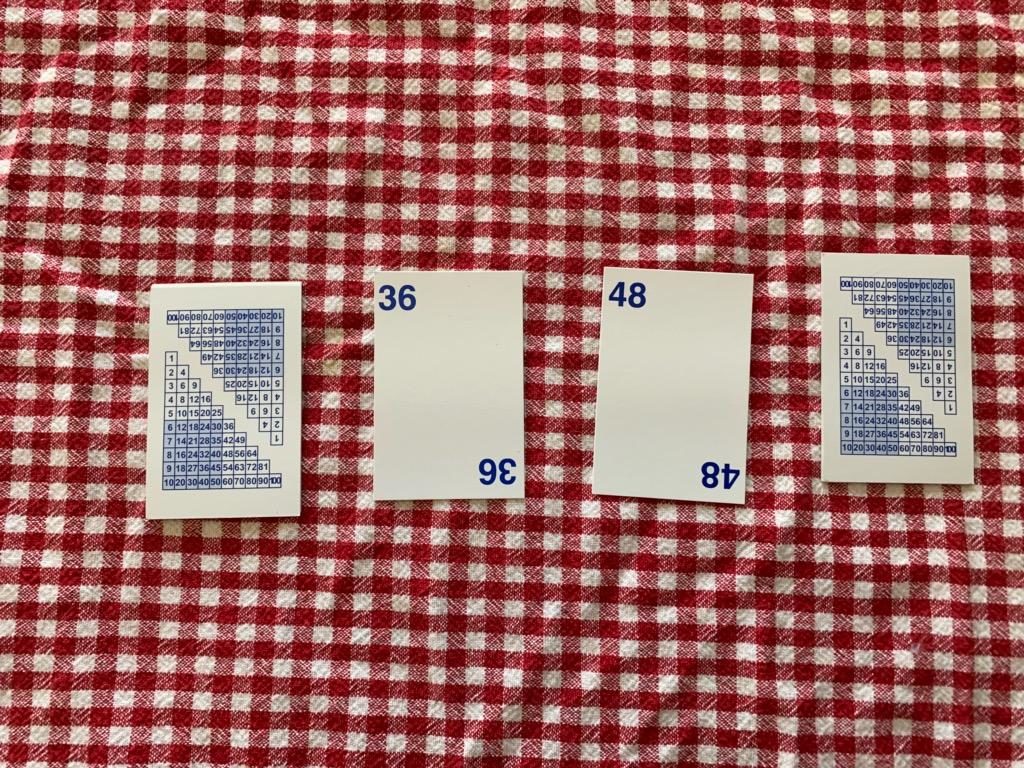
The remaining cards are divided into two stacks. One for each player.
Then looking at the 36 card, I ask them to name the factors of 36. In other words, what two numbers multiplied together equal 36? They say 6 × 6 and 9 × 4. For this game, factors cannot exceed 10.
Now we are looking to play one of the cards in our hand on top of one of the two face up cards, provided the two cards have the same factors.
Ian, sitting “closest” to us here, has 9, 6, 30 and 20. Peter, on the other side of the table, has 30, 15, 7 and 12. Because the boys are just learning the game, we play the first slower game with their cards visible. Normally, they wouldn’t see each other’s cards, but we’re just learning how to play now.
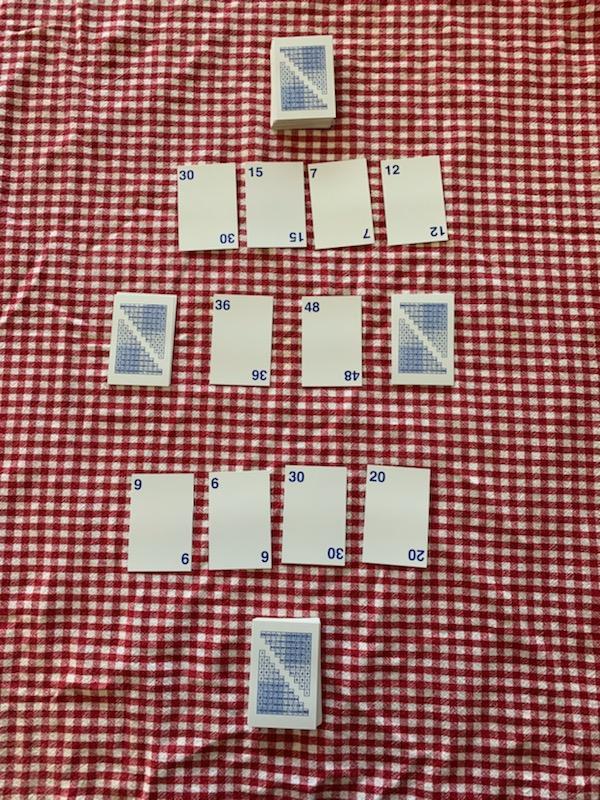
Ian goes first, laying the 6 on the 36 card because 6 × 1 = 6 and 6 × 6 = 36; they have a common factor of 6. He also lays the 30 on the 48 card because both are a factor of 6 again; 30 = 6 × 5 and 48 = 6 × 8.
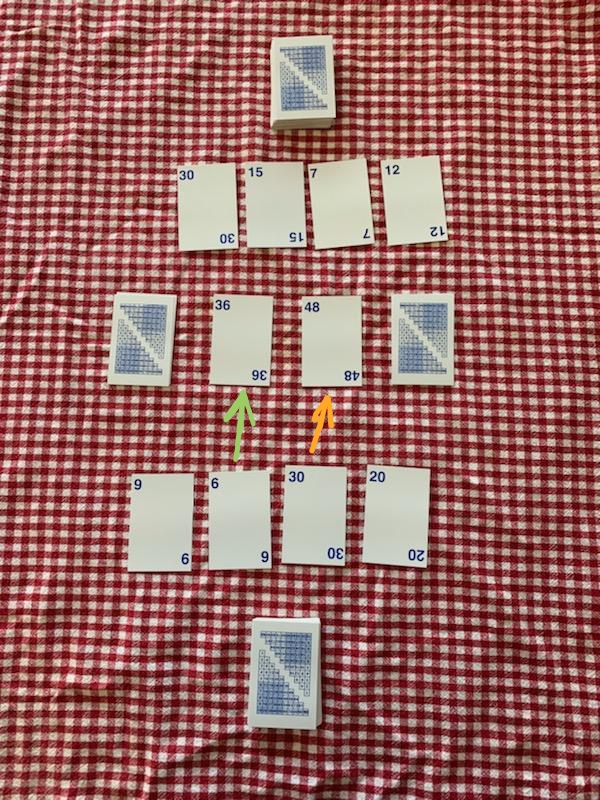
Ian then puts the 9 on the 6 because they both have 3 as a factor. Finally, he plays the 20 on the 30 as they have a common factor of 10. His turn is over as all cards in his hand are played. He takes four more cards and waits for his turn again.
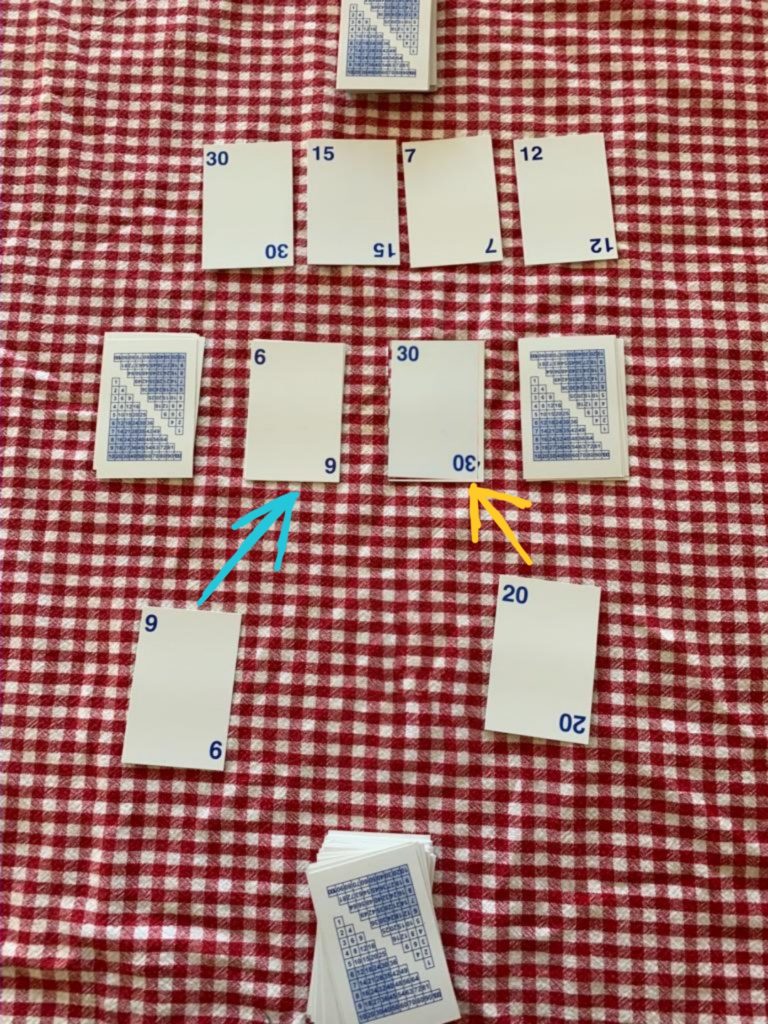
Now it is Peter’s turn. He plays 30 on the 20 card (common factors of 10), the 12 on the 30 card (common factors of 3), the 15 on the 12 card (again common factors of 3), but he can’t play the 7 card. His turn is over. He takes three more cards so that he has four cards in his hand again and waits for his turn.
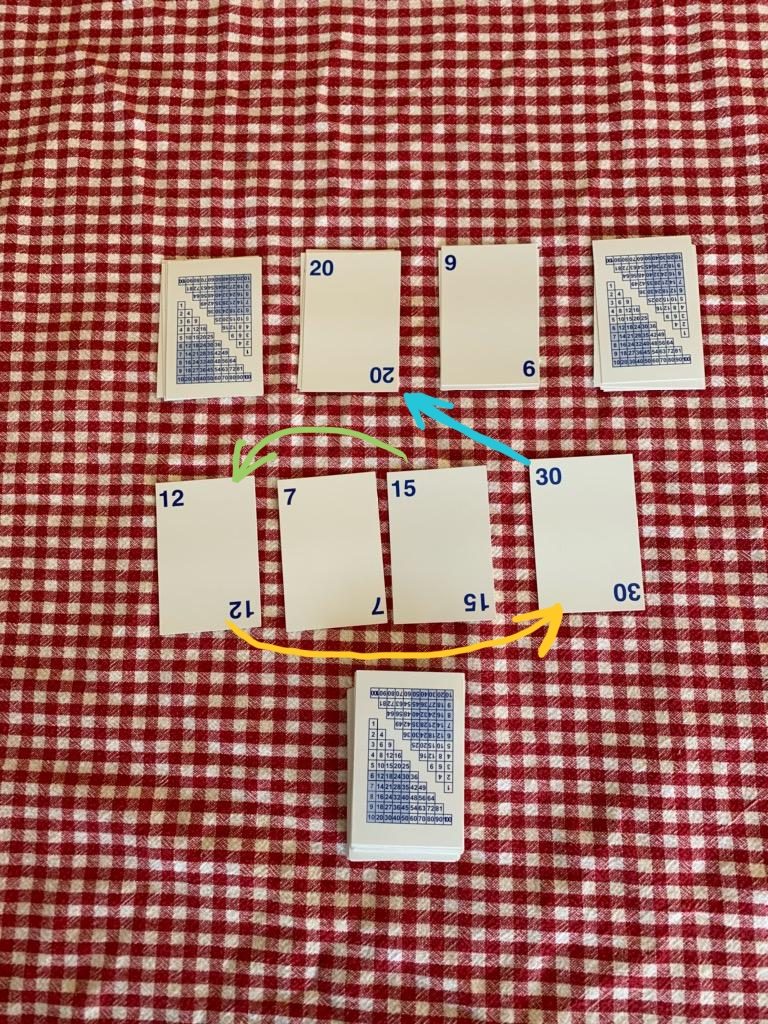
Note: To help a struggling child, a multiplication chart is helpful to find the factors. This is not cheating – it’s helping the child learn factors and multiplication facts. They will rapidly outgrow the need for the chart.
Play for the Slower Multiplication Card Speed continues until one person is out of cards. A maximum of four cards can be played each turn.
But this is a warm up to the real speed game that we want to play. We play just long enough for the boys to catch on to the rules. Then the fun begins!
When playing the Multiplication Card Speed, they play the cards from their hand and their stock pile to the face up piles in the center of the table, just like before. But now they disregard turns and don’t show the cards in their hands. It becomes a game of, well, speed!
If both boys are stuck and no one can play a card, they simultaneously turn over a new card from the reserve pile on their right and keep going!
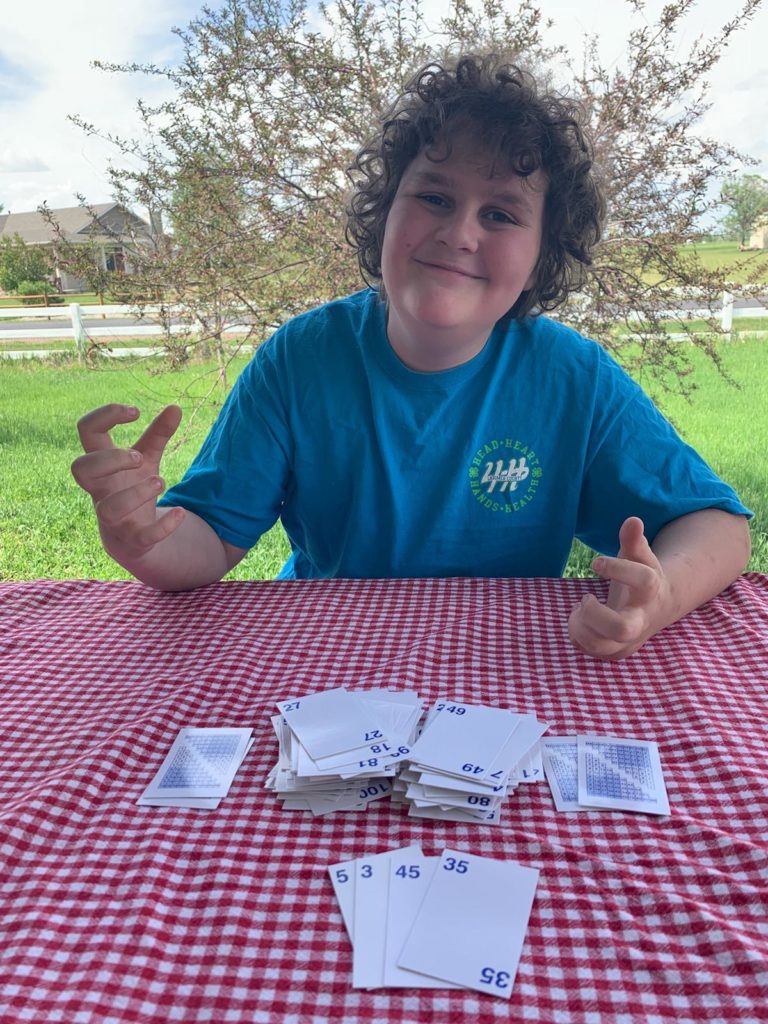
The game ended when Ian triumphantly runs out of cards. Peter was so close with only four cards to go! He could have played his cards, but it is all about speed in this game. And Ian was the speed king for the day!
If you’d like to watch a video, here you are. Watch, then go and have a wild game!

Do you have any games that help with integers?
As in working with negative numbers? Game S10 in the Math Card Games book, Negative Corners, is always a great game! Game S11, Top and Bottom Corners too. Game S25, On the Number Ten, is another option.